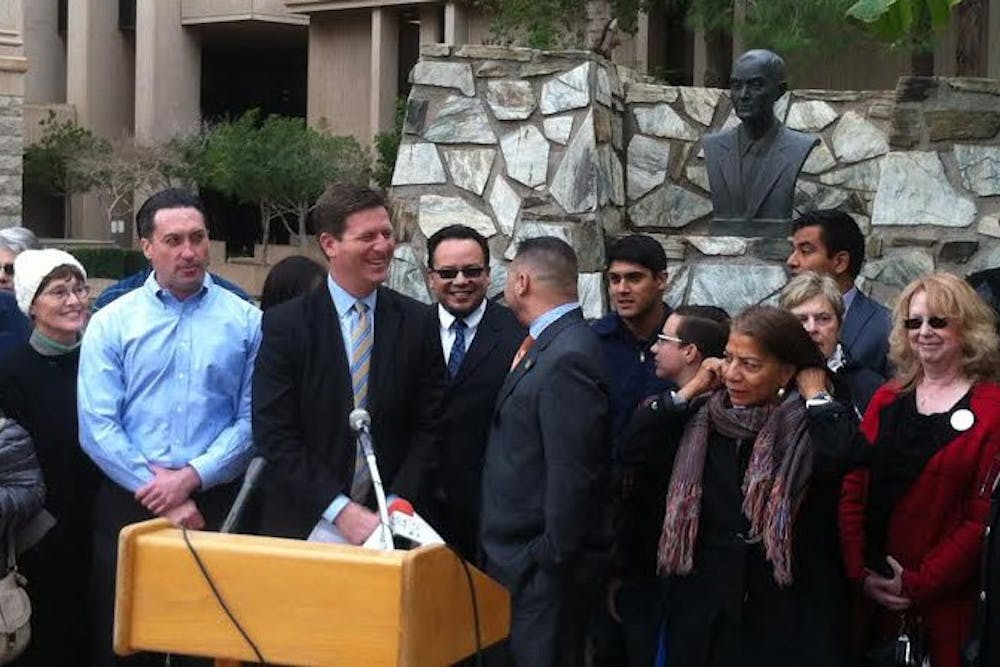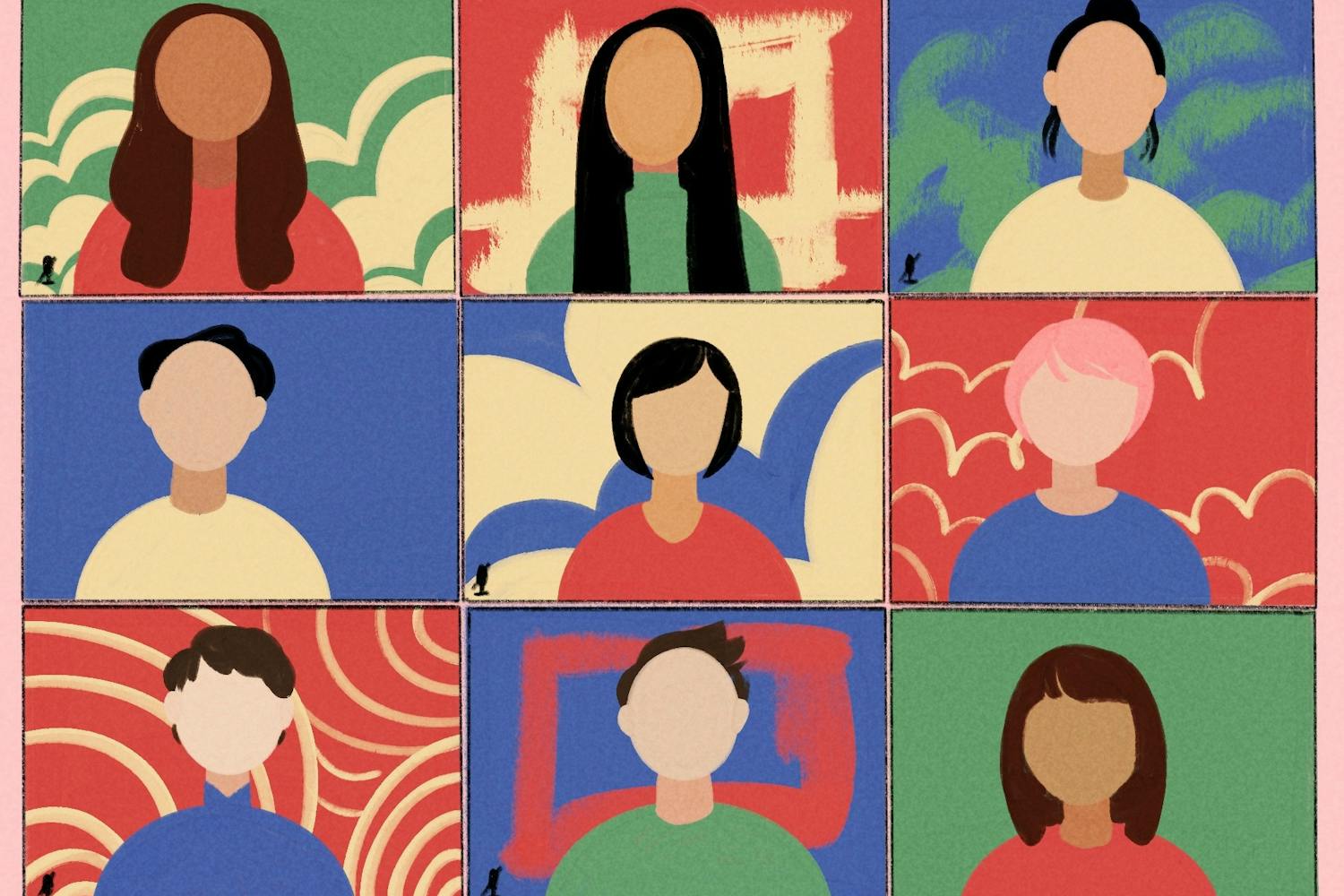Phoenix mayor Greg Stanton shared his disapproval for House Bill 2023 in a press conference at the Arizona Capitol Monday morning. The bill originated from the Arizona House of Representatives and it would make collecting early ballots from another person a felony.
Stanton said the bill would make the electoral process harder without solving the issue of voter fraud, something H.B. 2023 would address.
“This legislation purports to address a problem that does not really exist,” Stanton said. "While solving nothing, it will make felons out of thousands of volunteers working for great non-profit civic organizations and campaigns.”
Stanton said the bill would discourage thousands of voters from participating in the next election, including voters in predominantly low-income Hispanic neighborhoods and disabled and elderly voters in need of assistance.
Rep. Ken Clark (D-Phoenix) said the bill was an example of “ballot-blocking,” an effort to keep disadvantaged voters from participating in elections. They placed an emphasis on elderly voters who had mobility issues. However, the issue also applies to lower-income individuals who lack time to get to polling areas.
“They like to say, ‘Folks, if they really wanted to vote, they’ll go out and vote,’” Clark said. “That’s unrealistic of what people have to go through to vote when they’re elderly, when it’s hard for them to get around. They need to trust people to get that ballot to the poll for them.”
The Arizona Republic reported in 2013 that cases of voter fraud were rare, with only 34 court cases reported since 2005.
Ryan Boyd, vice president of policy for Undergraduate Student Government Downtown, said the bill was “a solution in search of a problem,” and that the vote was more about partisan beliefs than actually solving the issue of voter fraud.
“There is little evidence from either side and we continually just hear about anecdotal stories and hearsay that doesn't really move the conversation forward in either direction,” Boyd said. “Banning (ballot collection) will mean that less people will have access to voting whether it fights fraud or not.”
The bill’s sponsor is Rep. Michelle Ugenti-Rita (R-Scottsdale). The Republican-controlled House Elections Committee, which Rep. Ugenti-Rita also chairs, voted 4-2 last Monday to advance the bill.
According to the bill’s text, anyone who knowingly collects voted or unmarked early ballots from another person would be guilty of a Class 6 felony, punishable by up to two years in prison as well as a $150,000 fine.
State Sen. Martin Quezada (D-Phoenix) said similar bills have been introduced every year since he started serving in 2012, and said the bill was a “pathetic” attempt to restrict voting.
“It addresses a strategy people have used to engage people to vote,” Quezada said. “What‘s happened is that we are better at that strategy than they are, and instead of working to get better at that strategy to engage their voters, they’ve decided to just cut us off at the knees.”
The press conference was held by Arizona Advocacy Network, which has joined Mayor Stanton in opposition to H.B. 2023.
“In our country, the right to vote is sacred,” Stanton said. “In our country and in our state, voting should be fair, accessible and accurate. Vote-blocking legislation, like House Bill 2023 this session, and frankly, bills like this every session, do not make our elections more fair, more accessible, or more accurate.”
Reach the reporter at idickins@asu.edu or follow @sailormouthed92 on Twitter.
Like The State Press on Facebook and follow @statepress on Twitter.




